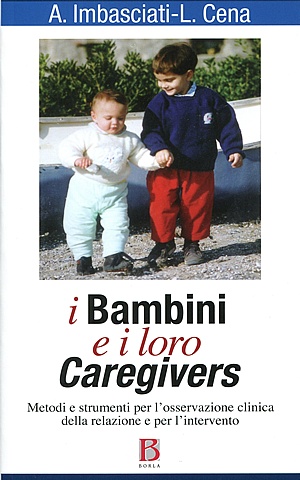
The Baby and its Care-Givers
Neurosciences and Perinatal Clinical Psychology developments demonstrated that individual neuropsychic structure develops since foetal time and its basic development happens in the first two years of life. First development quality qualifies every later (subsequent) development and so adult individual mind destiny. This developmental pathway does not happen by genetics laws, but by relational learning’s. Micromorphology and functionality of individual brain is structured by non verbal dialogue which, always in anyway, happens between foetus-baby-child and they who care of him. Interactions which in this relation occur always carry reciprocal non verbal messages, from caregiver to child and from him to his caregiver: the baby-child learns from it and this learning structures his brain. So relationship quality and messages quality may construct an optimal neuropsychic development rather than a defective or pathological one. Relationship quality depends on caregiver mind’s structure and on external conditions which allow his care may be operated. According to the up development’s ways, social and psychological assistance may be of a big relevance, chiefly for people who has not an optimal personal mind structure an so may induce in their children the same or worst defects. Humanity future may be involved here.
Our book aims to offer a survey about research on mind origin and its individual development: it outlinenes how parents and caregivers may be the authors of a good mind in their sons rather pathological or defective ones: in these last cases, when these sons will became parents, are not able to give theirs sons a good mind development. Good or worst transgenerationality is here involved.
